第37章
There are in this world blessed souls, whose sorrows all spring up into joys for others; whose earthly hopes, laid in the grave with many tears, are the seed from which spring healing flowers and balm for the desolate and the distressed. Among such was the delicate woman who sits there by the lamp, dropping slow tears, while she prepares the memorials of her own lost one for the outcast wanderer.
After a while, Mrs. Bird opened a wardrobe, and, taking from thence a plain, serviceable dress or two, she sat down busily to her work-table, and, with needle, scissors, and thimble, at hand, quietly commenced the "letting down" process which her husband had recommended, and continued busily at it till the old clock in the corner struck twelve, and she heard the low rattling of wheels at the door.
"Mary," said her husband, coming in, with his overcoat in his hand, "you must wake her up now; we must be off."
Mrs. Bird hastily deposited the various articles she had collected in a small plain trunk, and locking it, desired her husband to see it in the carriage, and then proceeded to call the woman. Soon, arrayed in a cloak, bonnet, and shawl, that had belonged to her benefactress, she appeared at the door with her child in her arms. Mr. Bird hurried her into the carriage, and Mrs. Bird pressed on after her to the carriage steps. Eliza leaned out of the carriage, and put out her hand,--a hand as soft and beautiful as was given in return. She fixed her large, dark eyes, full of earnest meaning, on Mrs. Bird's face, and seemed going to speak. Her lips moved,--she tried once or twice, but there was no sound,--and pointing upward, with a look never to be forgotten, she fell back in the seat, and covered her face. The door was shut, and the carriage drove on.
What a situation, now, for a patriotic senator, that had been all the week before spurring up the legislature of his native state to pass more stringent resolutions against escaping fugitives, their harborers and abettors!
Our good senator in his native state had not been exceeded by any of his brethren at Washington, in the sort of eloquence which has won for them immortal renown! How sublimely he had sat with his hands in his pockets, and scouted all sentimental weakness of those who would put the welfare of a few miserable fugitives before great state interests!
He was as bold as a lion about it, and "mightily convinced" not only himself, but everybody that heard him;--but then his idea of a fugitive was only an idea of the letters that spell the word,--or at the most, the image of a little newspaper picture of a man with a stick and bundle with "Ran away from the subscriber" under it. The magic of the real presence of distress,--the imploring human eye, the frail, trembling human hand, the despairing appeal of helpless agony,--these he had never tried.
He had never thought that a fugitive might be a hapless mother, a defenceless child,--like that one which was now wearing his lost boy's little well-known cap; and so, as our poor senator was not stone or steel,--as he was a man, and a downright noble-hearted one, too,--he was, as everybody must see, in a sad case for his patriotism. And you need not exult over him, good brother of the Southern States; for we have some inklings that many of you, under similar circumstances, would not do much better.
We have reason to know, in Kentucky, as in Mississippi, are noble and generous hearts, to whom never was tale of suffering told in vain.
Ah, good brother! is it fair for you to expect of us services which your own brave, honorable heart would not allow you to render, were you in our place?
Be that as it may, if our good senator was a political sinner, he was in a fair way to expiate it by his night's penance.
There had been a long continuous period of rainy weather, and the soft, rich earth of Ohio, as every one knows, is admirably suited to the manufacture of mud--and the road was an Ohio railroad of the good old times.
"And pray, what sort of a road may that be?" says some eastern traveller, who has been accustomed to connect no ideas with a railroad, but those of smoothness or speed.
Know, then, innocent eastern friend, that in benighted regions of the west, where the mud is of unfathomable and sublime depth, roads are made of round rough logs, arranged transversely side by side, and coated over in their pristine freshness with earth, turf, and whatsoever may come to hand, and then the rejoicing native calleth it a road, and straightway essayeth to ride thereupon.
In process of time, the rains wash off all the turf and grass aforesaid, move the logs hither and thither, in picturesque positions, up, down and crosswise, with divers chasms and ruts of black mud intervening.